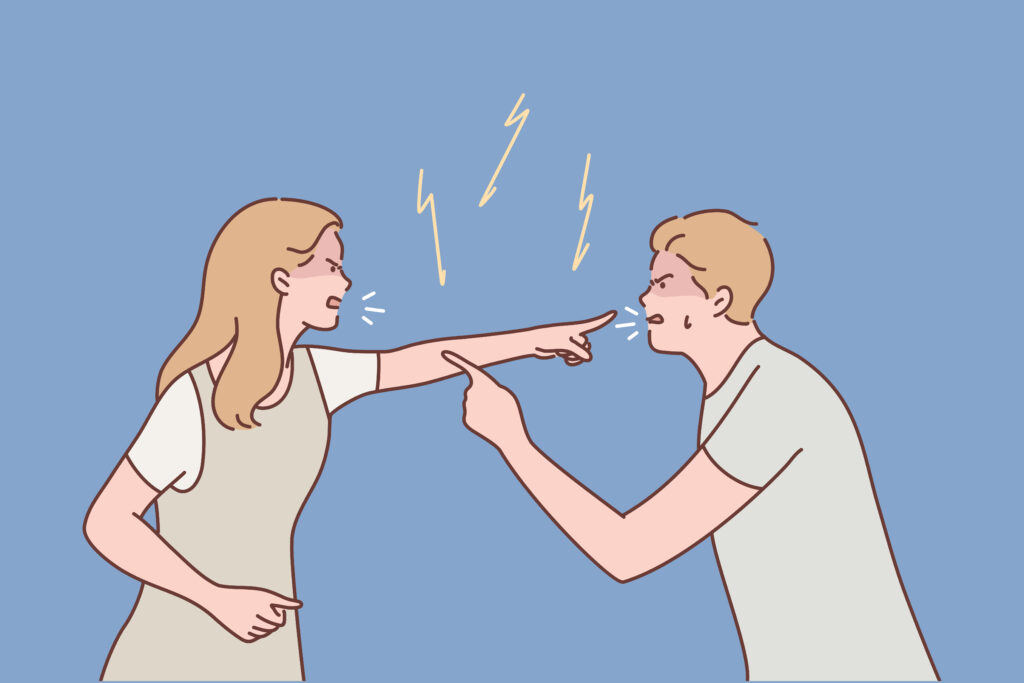Last updated on December 20th, 2024 at 01:55 pm
Communication is the foundation of any healthy relationship, but it is particularly crucial in long-term partnerships. It serves as the means through which partners connect, share, and understand each other. Ineffective communication can lead to issues and cause a relationship to decline, while strong communication skills can foster a deep, satisfying bond. This article will examine the significance of communication in long-term relationships.
Types of Communication
Verbal communication, nonverbal communication, and active listening are all essential types of communication in a long-term relationship. Verbal communication involves using words to express thoughts, feelings, and ideas, while nonverbal communication utilizes body language, facial expressions, and tone of voice to convey meaning. Active listening is a skill that requires giving full attention to what the other person is saying, without interruption or distraction. Each type of communication plays a crucial role in maintaining a healthy relationship.
Verbal communication is crucial for sharing information, making plans, and solving problems. Nonverbal communication, including facial expressions and body language, offers insight into a partner’s thoughts and feelings, while active listening enhances the ability to understand and empathize with one another.
Communication and Conflict Resolution

Effective communication is a crucial factor in preventing and resolving conflicts in a long-term relationship. When partners can express themselves clearly, listen actively, and respond with understanding, conflicts can often be resolved swiftly and constructively. Conversely, poor communication can result in misunderstandings and escalate conflicts, ultimately harming the relationship.
One of the most crucial ways to prevent conflicts is by promoting open and honest communication. Partners should feel comfortable expressing their thoughts, feelings, and ideas without fear of judgment or retaliation. This fosters an open dialogue in which both partners can share their perspectives and discover a solution that works for both.
Active listening is a vital component of effective conflict resolution through communication. It involves giving your full attention to what your partner is saying, without interruption or distraction. This approach fosters an understanding of your partner’s perspective and demonstrates empathy and compassion. When both partners feel heard and understood, it becomes easier to find common ground and achieve a resolution.
When resolving conflicts, it is crucial to avoid blame and criticism, opting instead for “I” statements to convey your thoughts and feelings. This approach helps to concentrate on the issue rather than attacking the individual. Both partners should take responsibility for their actions and be prepared to apologize when necessary. This demonstrates a commitment to accountability and a collaborative effort to resolve conflicts.
Another essential aspect of conflict resolution is compromise. Compromise enables partners to discover a solution that benefits both parties. It necessitates flexibility, adaptability, and a readiness to view situations from various perspectives. When compromise is reached, both partners feel acknowledged, and their needs are addressed.
Communication and Intimacy
Communication is also an essential ingredient in maintaining intimacy in a long-term relationship. Open and honest communication fosters a deeper emotional connection and understanding between partners, while poor communication can create emotional distance and separation. Effective communication enhances intimacy and helps sustain a strong emotional bond between partners.
Tips for Enhancing Communication for Greater Intimacy:
Communication and Trust

Trust is a crucial component of any long-term relationship, and communication is a vital factor in establishing and sustaining trust. Clear and open communication enables partners to understand each other, resolve conflicts, and strengthen their emotional connection. Without trust, a relationship may feel unstable and insecure.
Effective communication is one of the essential ways to build trust in a long-term relationship. When partners are open and honest with each other, they feel more secure and reassured in the relationship. Honesty and transparency in communication foster an environment of trust, enabling both partners to feel comfortable and safe being vulnerable with one another.
Active listening is a crucial element of building trust through communication. When partners invest time in listening to each other and comprehending each other’s thoughts and feelings, it fosters a deeper emotional connection and enhances trust. Demonstrating empathy and understanding in communication helps cultivate a sense of mutual support and validation within the relationship.
Consistency and reliability are crucial for establishing trust through communication. When partners consistently align their actions with their words, it demonstrates that they can be relied upon and trusted. Keeping promises and honoring commitments contributes to building trust and reassurance in the relationship.
Conversely, poor communication can result in a breakdown of trust. If partners are not open, honest, or consistent in their communication, it can foster feelings of insecurity and uncertainty. Furthermore, when partners avoid or evade communication, it can generate feelings of mistrust and make the relationship feel unstable.
Conclusion
In summary, communication is a vital component of a long-term relationship. It allows partners to connect, share, and understand each other. Effective communication can help prevent and resolve conflicts, maintain intimacy, and build trust. Conversely, poor communication can result in distance, misunderstandings, and relationship issues. Enhancing communication skills can lead to a stronger, more fulfilling long-term relationship. It is crucial to be open, honest, and communicate effectively to foster a healthy long-term relationship.


